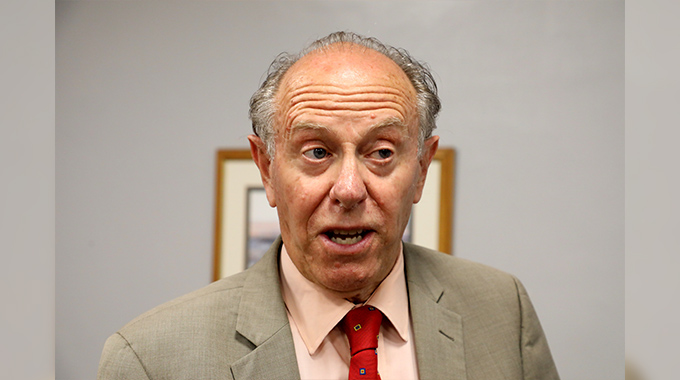Vuzu parties: Who’s to blame?

Nqobile Tshili
BULAWAYO has of late seen a rise in incidents of rowdy behaviour among teenagers who indulge in sexual orgies, alcohol and drug abuse. As if sex orgies, alcohol and drug abuse was not enough — two 17-year-old boys allegedly killed their guardians in a space of one week recently.
Children used to be the pride of society but have in recent times shamed their families and society as a result of their errant behaviour.
Last week, Bulawayo police arrested 224 teenagers and young adults aged between 13 and 20 years for conducting a Vuzu party at Rest Camp on the outskirts of the city.
This was the third group of teenagers arrested for the same offence, after another group was arrested at a house in Cowdray Park suburb.
Police also arrested some pupils at Centenary Park last month for public drinking.
During raids of these wild parties, police recover different types of beers, condoms and sex enhancing concoctions (umvusankunzi).
Police have urged parents to take an interest in the behaviour of their children and warned that they risk being arrested for failing to take care of their children citing the Children’s Protection Act.
“There’s a lot of peer pressure among teenagers. Teenagers are misleading each other and this has even cascaded to families. There’re spoilt children who’re not reprimanded at home for misbehaving and end up influencing their peers. These are the same children who rush to point accusing fingers at their parents whenever they are reprimanded claiming parents are abusing them,” said Julia Ndlovu, a parent from Old Pumula suburb in Bulawayo.
“When parents try to reprimand these children, they react violently that’s why there’re teenagers killing their guardians. As parents, we need to stand together and instill discipline among our children,” said Ndlovu.
A disoriented family structure, lack of parental guidance and youths seeking attention could be the major causes of children becoming unruly.
Historian Pathisa Nyathi said children are not getting enough parental guidance and are exposed to excess money which they have little use for.
“Children at a tender age have access to more money than they need. They can access venues that can afford them privacy and this is as a result of a fragmented family structure,” said Nyathi.
He said because of the mass exodus of Zimbabweans seeking greener pastures elsewhere, children grow without parental guidance which in turn affects their behaviour.
“Most of these children have parents overseas. They therefore lack parental guidance. They’re left in the care of their grandparents who don’t have control over them,” said the historian.
Nyathi said children whose parents are in the diaspora use their financial muscle to lure other teenagers to Vuzu parties.
He bemoaned the disintegration of the extended African family structure.
“The African society is facing an onslaught. We no longer have extended families whose members used to fill the void in the absence of parents,” said Nyathi.
He said society must understand that money alone cannot raise a child.
“This problem is a manifestation of parents living in the diaspora. Children are fighting with guardians over money sent from the United States of America, United Kingdom and even Canada. Parents shouldn’t be divorced from their children,” he said.
Nyathi said parents should desist from giving children lots of money as it resulted in them indulging in dangerous activities.
He blamed the country’s challenging economic environment which he said was forcing parents to seek greener pastures in other countries leaving their children exposed to alcohol and drug abuse as well as pre-marital sex.
Zalda Green, 17, said there was a lot of peer pressure among youths.
She said although there is lot of substance abuse during vuzu parties, not all of them were abusing alcohol.
“I feel that the parties should be allowed. We want to have fun during our leisure times. It’s not like we all want to indulge in sex or abuse alcohol. It’s just a few of us doing that,” said Zalda.
Some teenagers at vuzu parties drink sex enhancing concoctions such as umvusankuzi which is widely used by elderly men.
Traditional healer David Muhabhinyana Ngwenya said it was dangerous for teenagers to be using such herbs.
“They’re destroying themselves. Sex enhancing herbs are dangerous. They’ll expose themselves to prostate cancer and may end up suffering from erectile dysfunction,” said Ngwenya.
He said teenagers should be strongly advised against drug abuse.
Jane Ndebele of Nkulumane suburb said idleness and media influence was ruining children.
“Our children watch a lot of violent movies. Some of them end up taking what they see in the movies and applying it in real life. Social media is also affecting them. They’re sending each other lurid stuff through WhatsApp,” said Ndebele.
Another parent who spoke on condition of anonymity said the behaviour of today’s youths was confirmation of a biblical prophecy that the world was coming to an end.
Weighing in on the debate, playwright Cont Mhlanga said blame should not be solely put on teenagers as their unruly behaviour was an attention seeking technique.
He said teenagers are not given the opportunity to have fun and vuzu parties are a rebellion to unjust parenting.
“These are children who’re cornered by society which is neglecting their needs. They’re rebelling through these parties. Parents have totally ignored their needs by pushing them to churches,” said Mhlanga.
He said children should not be made societal outcasts but should instead be listened to.
“These parties are being organised by school going children who’re in complete rebellion to the education system that doesn’t give them the opportunity to exploit their full potential. The education system is not giving them a future.”
Mhlanga said the country should invest in leisure centres that can contribute to the education of teenagers instead of arresting them.
“Arresting these young people will turn them into hard core criminals. They’re making these teenagers heroes who know that they’ll be arrested only to be released into the custody of their parents,” he said.
Mhlanga said it was disheartening to note that Bulawayo youth centres were being leased to churches.
“They must invest in youth centres instead of leasing them to churches.
“Young people must be provided with alternative resources to help them grow. They can’t grow by just going to school and church,” he said.
Mhlanga said it was, however, encouraging that the teenagers were using condoms as it was a reflection that they understand the risks of engaging in unprotected sex.










Comments